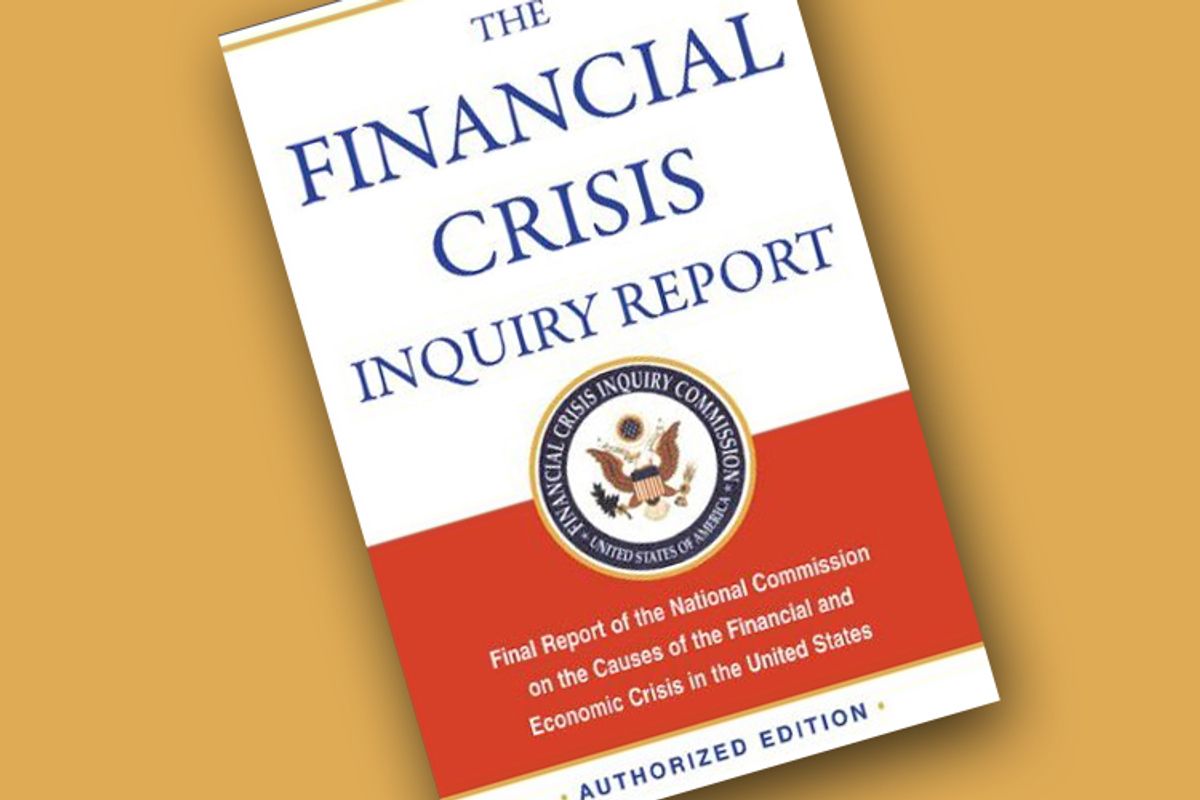On Thursday, the Financial Crisis Inquiry Commission will release its final report, a 576-page book that is supposed to explain the causes of, and assign blame for, the great financial crash of 2007-08. Judging by the New York Times' summary today, there doesn't appear to be much in the report that How the World Works will disagree with.
Some Internet commentators, like Barry Ritholtz at the Big Picture, are ecstatic at the FCIC's finger-pointing. And why not -- everyone from Alan Greenspan to Ben Bernanke to Larry Summers gets a spanking, with no shortage of castigation for incompetent bankers and derelict regulators.
But what does it all add up to? As I wrote in December, when the news broke that the Republican appointees to the commission intended to dissent from the panel's findings and had even gone so far as to try to ban the words "shadow banking," "Wall Street," "interconnected" and "deregulation" from the final report, the FCIC's deliberations aren't ultimately going to be good for much more than demonstrating "how the partisan divide is utterly crippling any attempt by the U.S. government to rationally confront our economic challenges."
When the commission was first announced, the great hope was that it would serve a purpose similar to the famous Pecora hearings held in the aftermath of the Great Depression. During the course of those hearings Pecora became a public hero, and his efforts laid the groundwork for the Securities Act of 1933, the Glass-Steagall Act of 1933 and the Securities Exchange Act of 1934.
Pecora was appointed by a Republican-majority Congress and then, once he really got going, supported against calls for his dismissal by a Democratic-majority Congress. It's impossible to imagine the same thing happening now. Whoever is in power will get findings that match their biases, and reject the findings that don't. This isn't new in politics -- even back in the '30s, the bipartisan support given to Pecora was rare -- but it may be worse now than ever before. One of the Republican appointees to the commission, Peter Wallison, is releasing his own dissent, reports the Times, that argues government encouragement of home ownership was the prime culprit in the disaster. Nobody who is familiar with Wallison's background could be surprised at that, but it's still worth marveling at. Any honest appraisal of the financial crisis has to start from the premise that a confluence of multiple factors came together to create our global mess. Many different villains shared culpability. But Wallison has always and forever opposed regulation of the financial sector, so government interference must be the guilty party.
Against such willful ignorance, the gods themselves contend in vain.

Shares